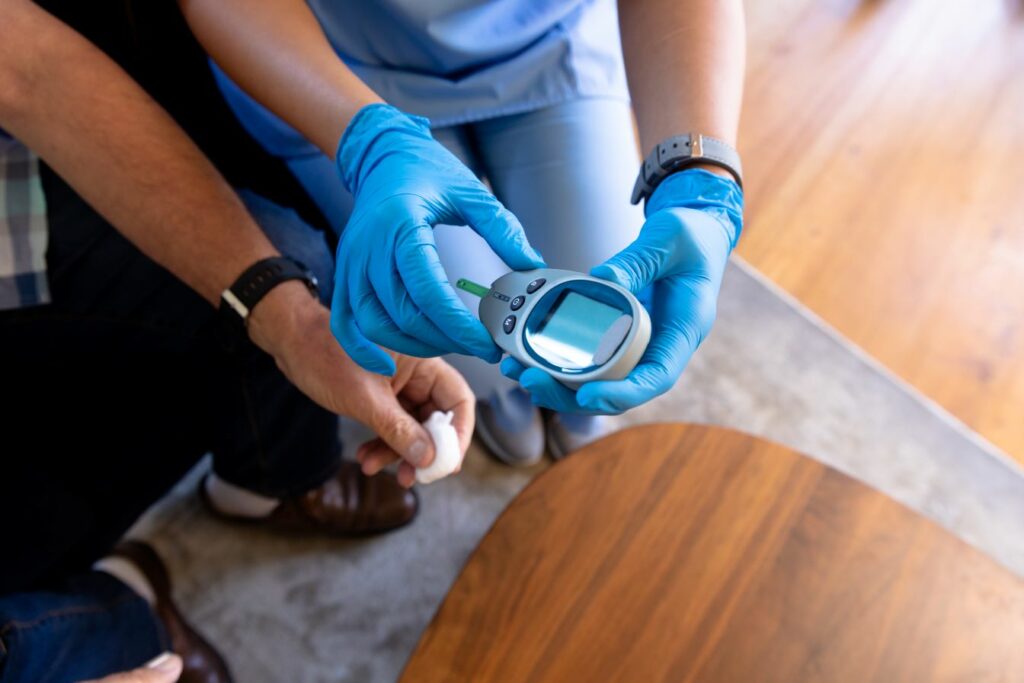Introduction
In the ever-evolving landscape of medical care, one vital ability continues https://landenfikc.bloggersdelight.dk/2025/01/23/mental-health-first-aid-supporting-others-in-times-of-dilemma/ to be consistent: the ability to perform Cardiopulmonary Resuscitation (CPR). For health care experts, being outfitted with CPR qualification is not just a regulative demand; it's an ethical imperative. This post explores "The Significance of CPR Accreditation for Healthcare Professionals," clarifying its important duty in conserving lives, enhancing professional proficiency, and supporting a culture of safety within medical care settings.
The Importance of CPR Certification for Healthcare Professionals
Cardiopulmonary Resuscitation is a lifesaving technique that can dramatically improve end results throughout cardiac emergency situations. The relevance of CPR certification can not be overemphasized for health care specialists, as they usually locate themselves in scenarios where their treatments can mean the difference in between life and fatality.
What Does CPR Stand For?
CPR represents Cardiopulmonary Resuscitation. It's an emergency treatment performed when the heart stops beating or when a person stops breathing. By rhythmically compressing the breast and offering synthetic ventilation, CPR assists maintain blood circulation to crucial organs till professional clinical aid arrives.
Life-Saving Skills Acquired with CPR Training
Basic Life Assistance Techniques
Through extensive training, health care experts discover exactly how to effectively do chest compressions and rescue breaths.

Use of AEDs
Training includes expertise on how to use Automated External Defibrillators (AEDs), which are essential tools in restoring typical heart rhythms.

Infant and Kid Resuscitation
Provided the unique physical differences in babies and kids, specialized training makes certain that doctor can react properly in pediatric emergencies.
Choking Relief Techniques
Recognizing how to reply to choking events is one more crucial element showed throughout CPR courses.
Why Health care Professionals Need CPR Certification?
Healthcare professionals are frequently at the frontline during emergencies. Having existing CPR certification outfits them with the skills required to act promptly and successfully:
- Confidence in Emergency situation Situations: Qualified professionals really feel a lot more competent when confronted with lethal situations. Legal Protection: Qualification can provide lawful defense under Good Samaritan laws. Professional Requirements: Several medical care employers require present CPR qualification as component of their working with process or continuous employment requirements.
The Role of First Aid Courses in Complementing CPR Training
While CPR concentrates on particular life-saving strategies, first aid incorporates a more comprehensive range of emergency situation care abilities. Completing a first aid training course alongside your CPR training improves your overall competency:
Addressing Non-Life-Threatening Conditions- Understanding how to take care of injuries, fractures, or allergies enhances your capability to handle heart emergencies.
- Recognizing psychological dilemmas is progressively crucial in today's healthcare environment. Psychological health and wellness first aid programs provide vital skills for attending to psychological wellness emergencies.
- Proper guidebook managing techniques reduce injury risk while helping clients throughout an emergency.
How Long Does a First Aid Certification Last?
Most first aid certificates need to be restored every three years; nonetheless, some companies may have various policies relating to renewal timelines based on details training routines or technical developments within first aid practices.
Where Can You Find First Aid Courses Near Me?
Identifying neighborhood first aid training courses is important for continuous education:
- Search online for "first aid program near me" or "first aid programs online." Local recreation center usually use budget friendly training options. Organizations like Red Cross provide both online and in-person programs tailored to different specialist needs.
FAQs About CPR Certification
How commonly must I restore my CPR certification?
Many certifications require revival every two years; however, consult your licensing organization for particular guidelines.
Can I take an online training course for my CPR certification?
Yes, lots of credible companies use accredited online courses that permit you to learn at your very own speed prior to functional assessments.
What if I miss out on a course throughout my training?
Many programs use makeup sessions or versatile scheduling choices so you can complete your training without missing out on critical content.
Is there a distinction between BLS and ACLS certifications?
Fundamental Life Support (BLS) concentrates on grown-up resuscitation methods, while Advanced Cardiovascular Life Assistance (ACLS) covers advanced interventions typically used by healthcare providers during cardiac events.
Are refresher courses necessary?
Yes! Routine correspondence course assist make sure that your skills continue to be sharp and current with existing guidelines.
What is included in a common first aid class?
A common course covers subjects such as wound care, fracture monitoring, choking alleviation procedures, burns treatment, and shock management in addition to fundamental life assistance strategies including CPR.
Conclusion
In conclusion, "The Relevance of CPR Accreditation for Health care Professionals" extends beyond mere conformity; it symbolizes responsibility toward individual safety and high quality care standards within clinical method atmospheres. As we navigate via progressively complex professional circumstances daily, continuous education with organized programs like first aid courses becomes extremely important not only for personal growth yet additionally for fostering a culture where security flourishes within our cultures at large.
This short article works as an extensive guide emphasizing not just the need yet also the extensive impact of getting proper certifications such as those provided through cpr, first aid, mental health and wellness initial aid, and relevant areas like manual handling Investing time into these trainings eventually shows essential when lives await balance-- since being prepared means having the ability to act decisively when every second counts!